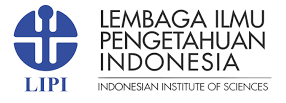Islamisme dan Kriminologi Kritis: Ketegangan antara Moralitas Ilahiah dan Kritik Struktural dalam Kebijakan Kriminal
Abstract
Islamism frames criminal law as an expression of divine morality and a tool of social control. Unfortunately, critical criminology challenges law as a product of structural domination, but faces an epistemological dilemma when applied to an Islamic state that bases criminal law on transcendent authority. This study uses a qualitative research method with a conceptual approach. The data collection method was collected using library research, then analyzed using qualitative methods and presented descriptively. The results of the study show that the adoption of Islamism as a legal ideology shifts the function of criminal law from a forum of justice to a medium of control over individual expression and beliefs, a configuration that is theoretically rejected by critical criminology that emphasizes the desacralization of power and resistance to structural repression. Dialogue between critical criminology and Islamism becomes possible if both are willing to abandon their hegemonic ambitions, by making maqāṣid al-sharīʿah an ethical framework for re-evaluating criminal law humanistically, and opening the law to criticism that sides with justice and human dignity.




1.png)





.png)

.png)







